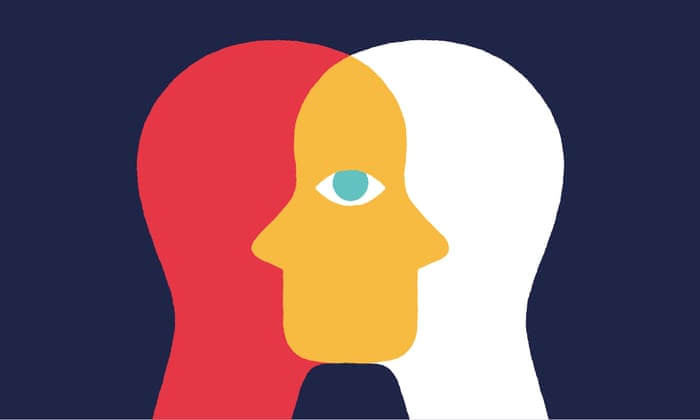In our current society, marked by deep polarization, it’s become almost impossible to avoid witnessing the constant clashes and culture wars that play out on our TV screens and social media feeds. There are numerous factors that contribute to these divisions, including political disillusionment, economic upheaval, globalization, fake news, and the echo chambers created by social media. While public discourse seems to be in a precarious state, researchers at the University of Derby suggest that cultivating compassion and kindness can offer a way forward.
Professor Frances Maratos, an expert in affective science, defines compassion as the recognition of distress, suffering, or disadvantage in oneself or others, followed by the ability to take action. Her research focuses on understanding the emotional well-being of individuals, exploring the psychological, neurological, cognitive, and physiological aspects involved.
Maratos works with schools, businesses, and other organizations to promote compassionate mind training, aiming to foster empathetic feelings where they may have previously been lacking. By shifting focus from the problem to potential solutions, individuals can develop a calmer and more collected mindset, allowing their brains and bodies to work in a different way. This change in perspective stimulates solution-focused thinking and triggers the release of acetylcholine in the brain.
Considering the enormous benefits compassion offers in addressing polarisation, the question arises: how can we inject more compassion into public discourse? The good news is that even if compassion seems absent in many culture war debates, it can be created. Maratos emphasizes that compassion is not limited to certain individuals, as it can be learned as a skill. While emotional capacities vary, everyone has the potential to enhance their empathetic abilities.
The first step towards cultivating compassion involves understanding what triggers feelings of threat, fear, and anxiety. Maratos guides individuals, including children and adults, to recognize the facial expressions and body language associated with anger or worry. By becoming aware of the situations that provoke these emotions, individuals can begin to develop empathy.
Maratos’s research also extends to schools, where she investigates compassion as a means of promoting well-being. She lectures in psychology and psychopathology at the University of Derby, and continues to contribute to research efforts examining the benefits of compassion.
The University of Derby boasts a team of academics from various disciplines who contribute to the understanding of compassion. Professor Lynn Saunders, head of law and social sciences, draws from her experience in the criminal justice system to highlight the importance of compassion when working with individuals who have been convicted of serious offenses. By focusing on both their risks and needs, Saunders believes that public safety can be enhanced and individuals can be supported in becoming better members of their communities.
Similarly, Professor Kate Moss, an expert in applied criminology, argues that increasing awareness and understanding of social issues can foster compassion. Her research on homelessness has revealed a shift in perspectives, challenging common misconceptions and prejudices towards homeless individuals. This shift towards empathy demonstrates the transformative power of knowledge and compassion.
For those seeking to make a positive impact, these approaches illustrate the value of interdisciplinary research and thinking beyond traditional boundaries. The University of Derby empowers undergraduate and postgraduate students to develop innovative approaches to researching global problems that defy traditional categorizations. Through initiatives like the Undergraduate Research Scholarship Scheme and PhD bursaries, the university supports students in taking the lead on research projects.
Building compassion is a collective responsibility that benefits individuals and society as a whole. Professor Maratos highlights the current neoliberal, hierarchical approach prevalent in society, which tends to nurture self-interest and narcissism. She promotes the development of skills that prevent dominance in conversations, drawing attention to the negative consequences when monopolizers take over discussions. In group settings, individuals must be equipped with the skillset needed to address and avoid such situations.
Redirecting one’s emotions is another crucial skill in fostering compassion. Instead of getting caught up in anger and engaging in confrontations, taking a moment to empathize and understand the perspectives of opponents can lead to more constructive outcomes. If everyone commits to this practice, we can contribute to creating a slightly kinder and more compassionate world.
The University of Derby encourages young individuals, aged 16 to 24, to submit short proposals for innovative research projects or course syllabi that have the potential to contribute to humanity’s efforts to address global challenges. Winners have the chance to receive £1,000 and collaborate with academics to develop a massive open online course (MOOC).
To sum up, despite the seemingly insurmountable divisions in our society, cultivating compassion and kindness is not only possible but also essential. By developing empathy, understanding triggers, and redirecting our emotions, we can contribute to a more compassionate world. Through interdisciplinary research and innovative approaches, we have the power to tackle global issues and create positive change.
Denial of responsibility! VigourTimes is an automatic aggregator of Global media. In each content, the hyperlink to the primary source is specified. All trademarks belong to their rightful owners, and all materials to their authors. For any complaint, please reach us at – [email protected]. We will take necessary action within 24 hours.


